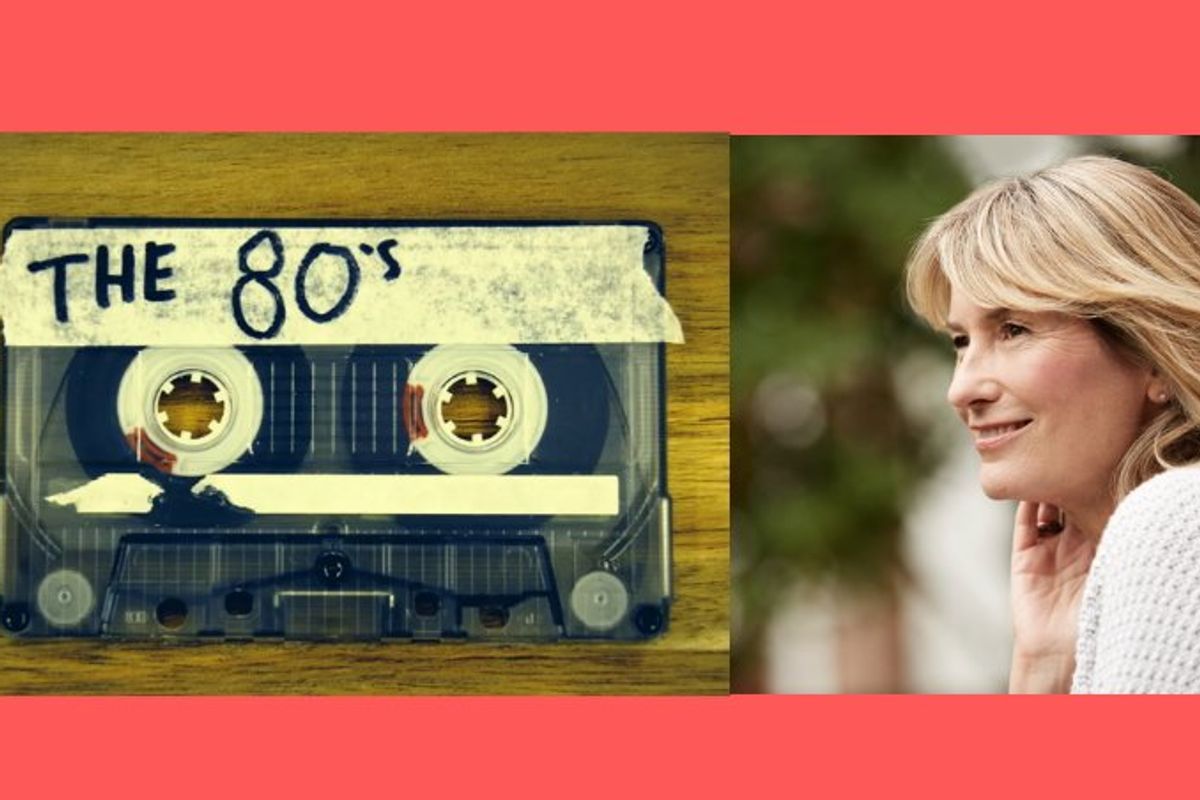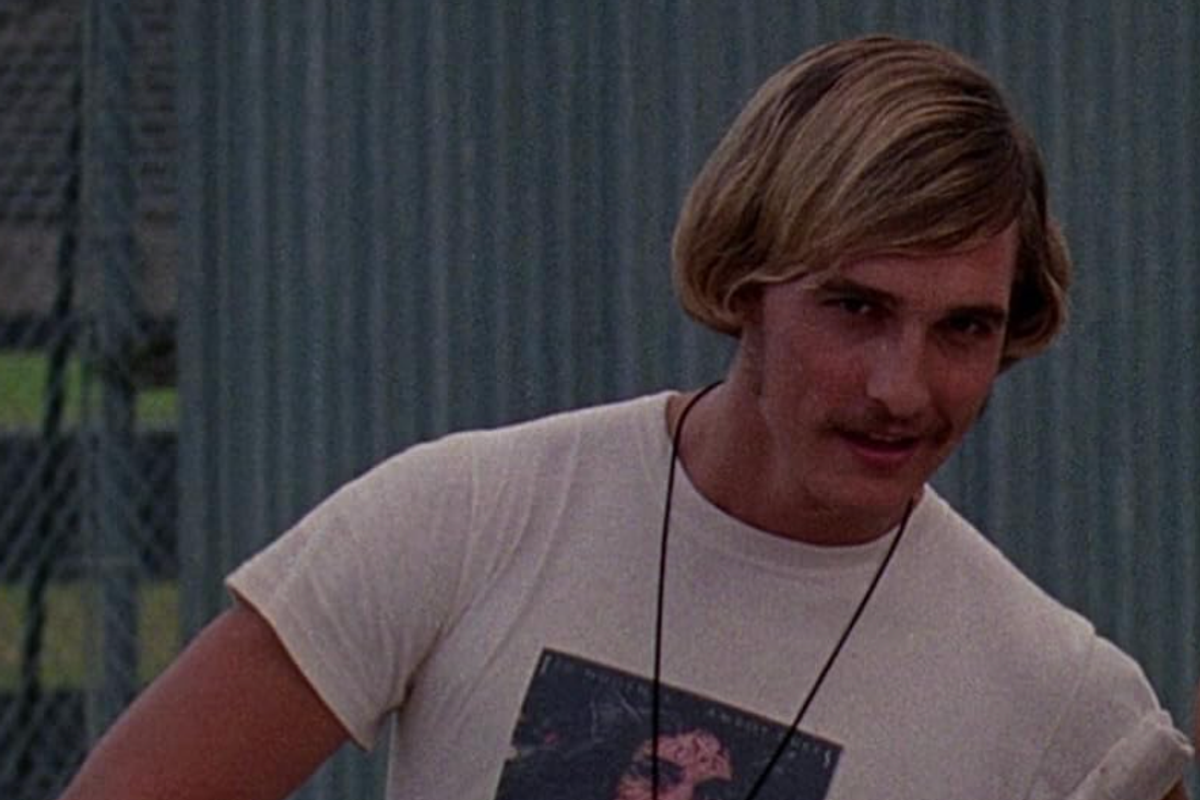Why so many people say they'd ditch modern day tech to go back to life in the 1980’s
More technology doesn’t equal happiness.

A person stares longingly at a 1980s cassette caps
Technology is great. It’s wonderful to have infinite information (though not necessarily wisdom) at our fingertips. Our lives are exponentially more convenient, productive, and efficient compared to the ol’ analog days. And not for nothing—I for one love being able to take a thousand photos to get an angle I actually like, versus, clumsily mishandling a disposable camera and forever being haunted by the results.
But has it truly made our lives…better? For everything technology has given us, it has also taken away just as much. And many would consider opting for the simplicity of a bygone era.
In fact, when a viral X post asked, “would you give up your cell phone, internet, and all of the inventions of the past 35 years to live in the 1980s again?” an overwhelming amount of people came back with a resounding “yes.”
“In a heartbeat,” one person wrote, while another said, in call caps, “YES, YES, & HELL YES!”
Or course, some of this yearning might have more to do with nostalgia. The past often feels more appealing than the present because our brains filter out the bad stuff due to a process called “rosy retrospection.” So the good ol’ days seem good because of how we’re currently processing a precious memory.
You can even see a bit of this playing out in some of the comments. One person wrote, “Yes, I would have a chance to see my Dad again and tell him - that I loved him,” while another said, “Absolutely. Ditch the Iphone, give me a Walkman, and a pantry full of Pizza Rolls. I’ll be slow dancing to Phil Collins in a power suit while my VCR eats a Blockbuster rental.”
Neither of these examples truly indicate that the minimal tech era was indeed better for the whole of humanity (or even for the individual). But it does contain moments the commenters found positive. Bringing back the concept of photos, it’s akin to seeing a picture you took years ago, that you thought you looked fat in, only to now bask in how young and vibrant you were.
Still, as many experts and everyday folks can agree, the rise of technology in the age of capitalism is nonetheless a nasty combo.
As Dan Demers wrote in Forbes, “instead of streamlining and simplifying, technology has become a constant game of one-upmanship. Companies are always trying to outdo one another by cramming in more and more, without really thinking about what is absolutely essential.”
Similarly, in his online blog business strategist and author Chris Skinner noted how the prevalent presence of technology keeps up “working nonstop” and “consuming the planet.”
So, the obvious, most honest answer is, of course: technology has made our lives better…and also worse. But one could argue that it’s mainly unregulated technology + unregulated consumerism that’s the culprit. Technology is, after all, merely a tool.
This is where digital detoxes come in. Since, barring a Matrix-style takedown of all robot lifeforms, technology isn’t going anywhere, all we can really do is take control of our own consumption. Luckily, in terms of mental health, it really works.
According to the Newport Institute, there are 8 effective ways to take a break from your digital devices:
1. Dedicate chunk of your day to going offline, even if you can't commit to a full day
Most of us simply can’t completely disconnect due to work, school, or other obligations. But even an hour before bed each night can be effective.
2. Start small and work your way up
First 15 minutes each morning, then 30, then so on. Maybe you can work your way up to a full day, but no need to pressure yourself.
3. Turn off notifications
This is a big one. You can either test your restraint every time you get a little ding on phone, or you can eliminate the temptation.
4. Delete apps
Like step 3, on steroids. As the Newport Institute article notes, you can always get these apps back if you find that you do in fact need them.
4. Physically separate yourself from your phone
Leave it in another room, in a box that automatically puts it in airplane mode, or, if you’re brave enough, at home completely.
6. Start an accountability group
Odds are there are other folds in your social circle that would love to digital detox as well. Have a no-phones dinner or hike with friends. You could even start a money pool for those who end up braking to keep things interesting
7. Invest in a cold school alarm clock
This automatically sets up to at least not wake up with your device.
8. Make tech-free plans
There are plenty of activities—a beach day, a bike ride, a nature walk—that don’t requite a phone, and are far more fun without them.
Bottom line: we might never agree on whether or not technology is the savior or doom of civilization, or whether the pre-tech 80s were in fact the better time to be alive. But we can all say that we are here, now, and there are ways to make the best out of life, no matter what era we’re in.
We can also all agree that nobody needs to go back to 80s hair bands, right?

- People are sharing endearing stories of how their elders use—and misuse—technology ›
- High school teacher quits her job because 'technology is ruining education' ›
- People share the things they still like to do the ‘old-fashioned way’ without technology ›
- Adults who actually lived through the '80s share 15 things pop culture still gets wrong about that time - Upworthy ›
- Guy sparks debate by claiming he can tell you were born after 1995 if you say 'VHS player' - Upworthy ›



 Student smiling in a classroom, working on a laptop.
Student smiling in a classroom, working on a laptop. Students focused and ready to learn in the classroom.
Students focused and ready to learn in the classroom.
 Matthew McConaughey and Shawn Andrews in Dazed and Confused (1993)Facebook
Matthew McConaughey and Shawn Andrews in Dazed and Confused (1993)Facebook 
 A UPS truck with package deliveries.Image via Wikipedia
A UPS truck with package deliveries.Image via Wikipedia
